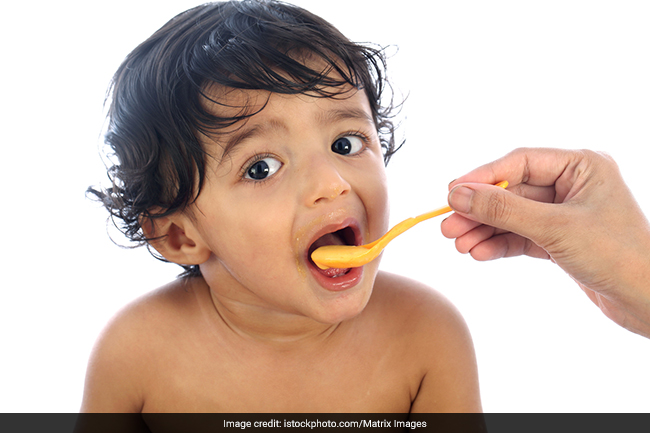New Delhi: The popular saying goes, “Too many cooks spoil the broth” and it may well be true when it comes to overtures and advice from various quarters, sometimes well meaning, mostly unsolicited, in case of an infant’s diet and nutrition. From how to feed baby, what to feed, when to feed, dos and don’ts the list is endless. Complicating matters are the traditional beliefs and prevalent myths passed down generations that have managed to survive the test of time. This World Breastfeeding Week (WBW) that aims to protect breastfeeding, we fact check some of the beliefs and age-old practices, as some of these tend to hamper a child’s optimal growth and development, especially in the critical window from birth to two years of age. WBW 2021 will focus on how breastfeeding contributes to the survival, health and wellbeing of all, and the imperative to protect breastfeeding worldwide. Hence, it becomes crucial to let go of the misconceptions.
NDTV speaks to Dr Suparna Ghosh – Jerath, Professor and Head Community Nutrition at Indian Institute of Public Health (IIPH – Delhi), Public Health Foundation of India (PHFI) to bust the dietary myths that can hamper your child’s health during the first two years after birth.
Also Read: National Nutrition Month: Why Breastfeeding Mothers Should Opt For A Balanced Diet, Experts Speak
1. Myth: Breastfeeding Is Not Sufficient In Tropical Climate
Fact: Majority of India is a sub-tropical country which implies very hot summers, humid rainy season and mild winters. Living under such climatic conditions, breastfeeding mothers often believe that exclusive breastfeeding for the first six months is not enough and does not fulfill the water requirements of an infant. To quench the thirst of their child, mothers often give water to babies during the first six months, which is one of the wrong practices.
Along with essential nutrients like calcium, vitamin C, breastmilk has enough water as well. If you breastfeed right way which is empty one breast at a time and provide both foremilk (milk at the beginning of feeding) and hindmilk (milk at the end of a feeding), exclusive breastfeeding is possible even in a tropical climate like India, says Dr Suparna.
While foremilk satiates the thirst of the baby, hindmilk is rich in fats and takes care of the energy needs. Therefore, exclusive breastfeeding is pivotal and adequate.
2. Myth: Colostrum Is Impure
Fact: Colostrum is the bright yellowish, thick, first milk of the mother. Colostrum which is rich in proteins and has anti-infective properties is recommended to be fed to the baby but some women in India still discard the colostrum, considering it to be impure.

Colostrum, the bright yellowish, thick, first milk of the mother is rich in proteins and has anti-infective properties
You name the nutrient or a property and colostrum has it, but despite this, it is discarded. Though colostrum has high concentration of vital nutrients, it is produced in very less quantity and only for three days post birth of a child. Hence, it is essential to initiate early breastfeeding and feed colostrum to the baby. It is not impure in fact it is the first immunisation of the baby, says Dr Suparna.
3. Myth: Complementary Feeding Should Be Initiated Within Six Months
Fact: Ideally, for first six months a child should be exclusively breastfed and post that breastmilk should be supported with other food and liquid items. Parents often believe that exclusive breastfeeding is not enough and start feeding rice water and pulses water to the child, but early initiation of complementary food may lead to an infection in infant’s gut as at this stage, it is ready to take in only breast milk and foreign material may harm rather than benefit the body.
4. Myth: Late Introduction Of Complementary Feeding
Fact: It is said that everything has a right time and that is why expert suggests timely initiation of complementary feeding. Post six months, one must start complementary feeding as the growing nutritional needs of the baby cannot be fulfilled through breast milk alone. Because of the delay in the introduction of regular food and liquid meals, the child might slip into a range of anaemia and malnutrition.
In many tribal communities I work, I see exclusive breastfeeding is not an issue unlike urban areas where mothers have inhibitions about breastfeeding the baby in public. In tribal regions, women know breastmilk is the ideal food for their child, but delayed introduction of complementary food is prevalent there, says Dr Suparna.
Also Read: Smile On Wheels Provides Access To Primary Healthcare To The Poor At Their Doorstep In 22 States
5. Myth: Mothers Should Bottle Feed The Baby At Night
Fact: In order to relax and take some rest, mothers often bottle feed the baby at night and put him/her to sleep, but as per the expert, a baby must be breastfed at night. Elaborating on the same, Dr Suparna says,
One of the hormones called Prolactin, responsible for the production of milk in the body, is very active during night time. To keep up with milk production, breastfeeding should be encouraged at night.
6. Myth: Juices Are A Rich Source Of Vitamins In Young Child’s Diet
Fact: Undoubtedly, fruit juices are rich in Vitamin C but these may adversely affect the baby’s gut as it may not be able to digest fruit juices, especially in the first year of life.
Mother’s milk is rich in Vitamin C so if a child is exclusively breastfed for 180 days and then complementary feeding is introduced along with breastfeeding till two years and beyond, he/she will never be vitamin C deficient. Parents should focus on breastfeeding and avoid fruit juice, says Dr Suparna.
7. Myth: Liquid Meals Make Up For Complementary Feed
Fact: Parents often confuse complementary feed with liquid diets and wonder if it is sufficient to feed rice water, pulses water or thick broth. According to the expert, these watery preparations are low in calorie and won’t provide nutrients equivalent to breast milk, let alone meet the additional need for nutrients. Therefore, just rice water or pulses water won’t provide any additional benefit to the child.
Complementary food needs to be thicker in consistency so instead of pulses water give a bowl of lentils, mix lentils and rice and prepare a homogeneous khichdi (cereal), suggests Dr Suparna.
8. Myth: Packaged Food Provides Nutrients To The Child
Fact: Parents who can afford often resort to processed nutritious food available in the market including cereal. Processed and packed food available in the market might have additional vegetables and nutrients but the fact is it is not fresh and natural. A diverse diet is essential and can be provided through regular vegetables and fruits that the child’s family consumes.
From meat, eggs, vegetables, to fruits and pulses, food that is coming for the family should be provided to the child. A diverse diet has to be introduced among children and cannot be introduced at one go so it is better to start early and slowly, suggests Dr Suparna.
































